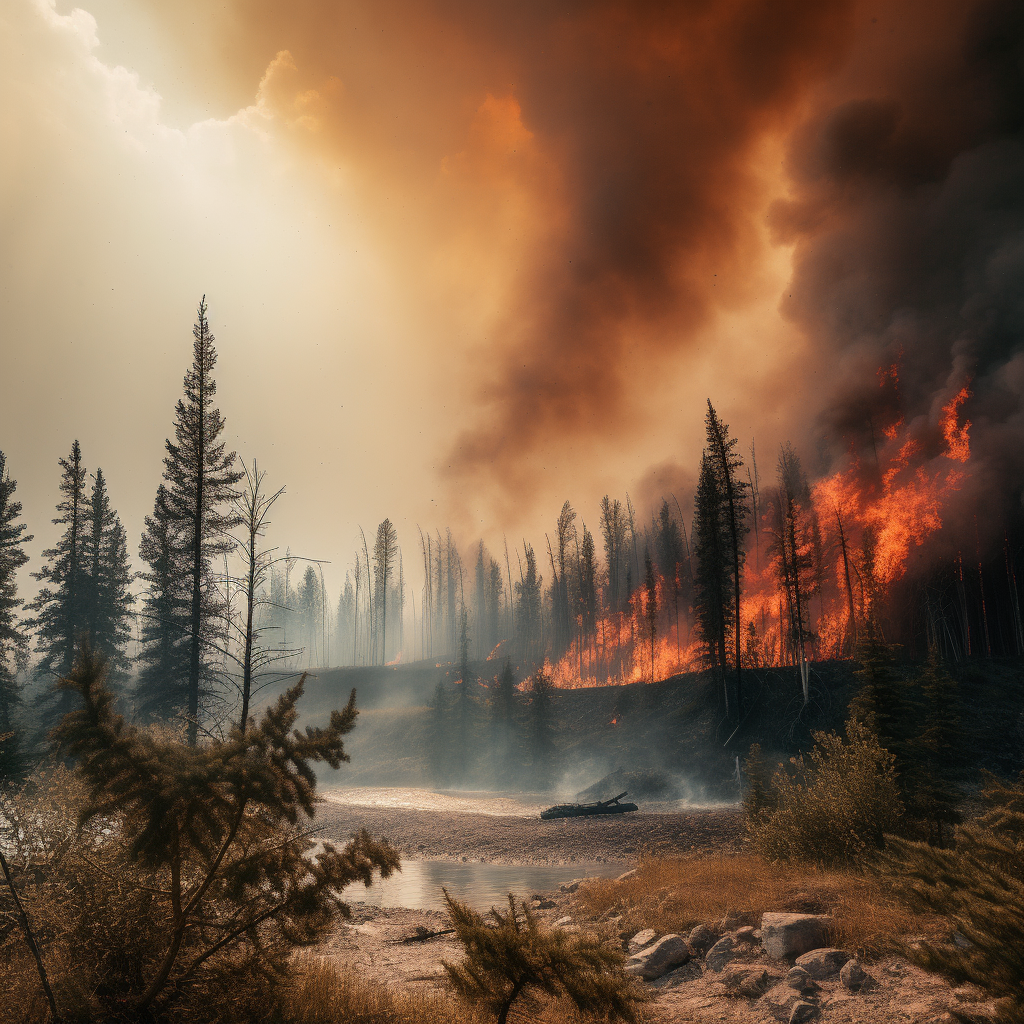June 28, 2024
The 2023 Canadian Wildfires and their Global Climate Implications
Book a Demo
The catastrophic 2023 wildfires in Canada left a trail of devastation that won’t be forgotten any time soon. In one of the most severe wildfire seasons on record, approximately 7.8 million hectares of forest were burnt, equivalent to the size of Ireland. The aftermath was staggering, with billions of dollars of property damage, thousands of displaced residents, and a significant surge in greenhouse gases. The fires were not only devastating in their immediate impact but also have long-term implications for climate change.
One of the most concerning aspects is that current methods of carbon accounting do not consider emissions from wildfires. This omission could potentially lead to a significant underestimation of Canada’s contribution to climate change. While climate change itself is driving an increase in the frequency and severity of wildfires, creating hotter, drier conditions that lead to larger, more recurrent fires.
Even though the wildfires caused extensive damage, there’s a silver lining. The majority of carbon emitted from wildfires can be reabsorbed by regrowing forests. However, this process can take several decades, and the immediate impact of the wildfires cannot be overlooked. In fact, the 2023 wildfires were responsible for emitting four times the amount of carbon dioxide as the entire global aviation sector.
The wildfires did not affect all Canadians equally. First Nations and Indigenous communities bore the brunt of the devastation, accounting for over 42% of evacuations. This disproportionate impact highlights the potential benefits of incorporating traditional fire management practices, which have historically been used to maintain the health of the forest ecosystems.
The repercussions of the wildfires were felt far beyond the borders of Canada. The smoke from the fires traveled hundreds of miles, turning New York’s skies a hazy orange. This phenomenon has become more frequent and intense, revealing the global implications of such incidents.
A report published by Global Forest Watch and the University of Maryland underscored the massive scale of the 2023 Canadian wildfires. They stressed the urgent need for action, including reducing carbon emissions and reintroducing controlled burns in collaboration with Indigenous communities. This collaborative approach to wildfire management is seen as an integral part of mitigating the harmful effects of wildfires and addressing climate change in the future.
The 2023 Canadian wildfires serve as a stark reminder of the devastating effects of climate change. To mitigate future disasters, it is imperative to reassess our carbon accounting methods, incorporate traditional fire management practices, and work towards reducing carbon emissions globally. The road to recovery may be long, but every step taken can make a significant difference.
Science4Data is committed to cut through greenwashing and measure real impact. Join the journey to a sustainable future. Your actions matter.



